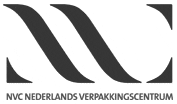Environment: EU aiming to be at the forefront of efforts to reduce marine litter
Marine litter is a serious threat to the coastal and marine environment around the globe. Marine habitats are contaminated with man-made garbage and other waste, posing growing environmental, economic, health and aesthetic problems. The European Commission is raising awareness about this global problem, in line with commitments made in Rio this summer to reduce the incidence and impacts of such pollution on marine ecosystems.
To raise awareness and stimulate reflection, the Commission is publishing an overview of the relevant EU legislation, policies, and strategies that touch on this problem, with an indication of on-going and future initiatives in this area. The overview can be consulted here.
Marine litter is a composed of up to 80% of plastic, and originates from a diverse range of sources. Plastics tend to persist in the marine environment, possibly for hundreds of years. The document concludes that policies on water, resource efficiency and waste, marine and nature protection policies as well as ship and port infrastructure-related legislation all have a role to play in tackling the problem, but they need to be better implemented.
Past efforts have been hampered by a lack of solid information about the exact scale and nature of the problem. But this should now be partially resolved, as better knowledge becomes available. By 15 October 2012, as part of the implementation of the Marine Strategy Framework Directive, Member States had to submit an initial assessment of the state of their marine waters, their definition of 'Good Environmental Status' and the targets they have set to achieve it. The Commission is now analysing the reports of the Member States and intends to publish its assessment in 2013 (Press Release European Commission, 16 November 2012).

